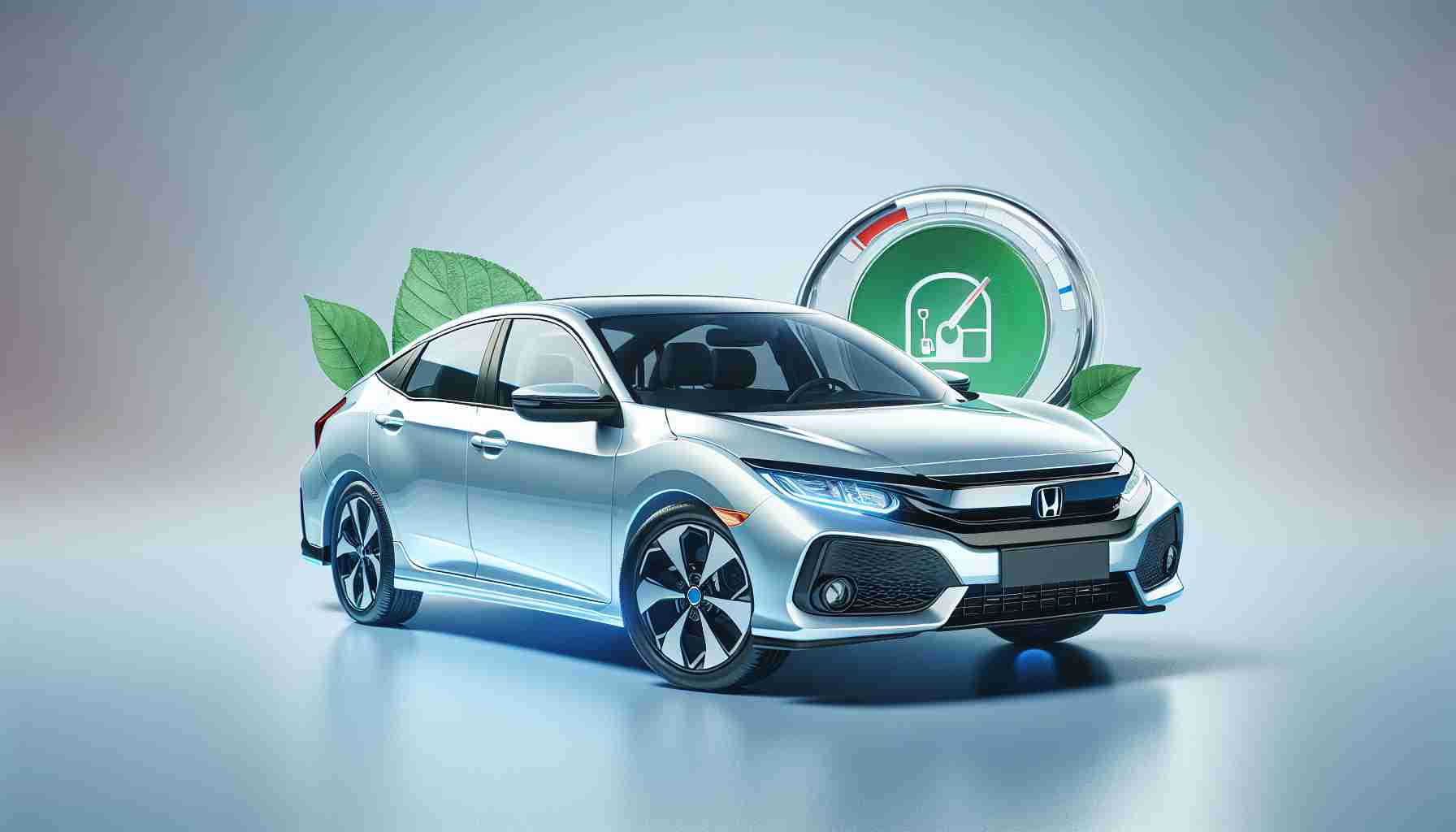A Budget-Friendly Fuel Efficient Alternative
When it comes to purchasing a new vehicle, many consumers are deterred by the high prices of electric cars, which average around $55,544 as of December 2024. In contrast, the 2025 Honda Civic Sport Touring Hybrid offers a compelling alternative at an MSRP of $31,950, making it an attractive choice for those who want efficiency without breaking the bank.
This hybrid vehicle boasts an impressive fuel economy, rated at 49 mpg combined, making it a great option for long drives. With a fuel tank capacity of 10.6 gallons, it can achieve a remarkable range of up to 519 miles, easily surpassing some electric vehicles.
The Civic Hybrid is powered by a robust 2.0-liter engine that produces 200 horsepower, providing an enjoyable driving experience. Its responsiveness, especially in Sport mode, makes highway merging and passing effortless. Despite its hybrid status, it drives smoothly and feels anything but underpowered.
Additionally, the interior features modern amenities, including a 10.2-inch touchscreen compatible with both Android Auto and CarPlay. While the design elements like honeycomb air vents add a unique flair, some might find the seats slightly stiff over long journeys.
For those seeking a practical yet fun car without the electric vehicle price tag, the 2025 Honda Civic Sport Touring Hybrid stands out as a remarkable option.
Economic and Environmental Ripple Effects of Hybrid Vehicles
The growing popularity of budget-friendly hybrid vehicles like the 2025 Honda Civic Sport Touring Hybrid signifies a shift in consumer behavior that may have profound implications on both society and the global economy. As hybrid options become more accessible—priced comparably to traditional vehicles—there is potential for widespread adoption. This shift can enhance fuel efficiency at a larger scale, addressing not only individual consumer savings but also contributing to a reduction in overall fuel demand, which may stabilize oil prices globally.
The implications extend beyond economics. With hybrids bridging the gap between electric and gasoline vehicles, they encourage a cultural transformation toward sustainability. This transition could lead to increased public acceptance of greener technologies, paving the way for deeper investments in research and development for next-generation hybrids and electric vehicles. As hybrid sales surge, traditional automakers may experience pressure to innovate, thus fostering competition that accelerates technological advancements.
However, the rise of hybrids also raises environmental considerations. While reducing emissions compared to purely gasoline-powered vehicles, hybrids still rely on fossil fuels. This dual dependency may slow down the transition to entirely electric fleets. Furthermore, the production of hybrid batteries presents its own environmental challenges, including resource extraction and waste management.
As we look to the future, several trends may shape the hybrid vehicle landscape. Continued improvements in battery technology and the development of renewable energy sources can substantially reduce the environmental impact of hybrid cars. The automotive industry’s evolution towards electrification makes it critical for consumers, policymakers, and manufacturers to balance affordability, emissions, and sustainability in the years ahead.
Discover the 2025 Honda Civic Sport Touring Hybrid: Your Best Budget-Friendly Choice!
A Budget-Friendly Fuel Efficient Alternative
In a landscape where electric vehicles dominate headlines with their high price tags and advanced technology, the 2025 Honda Civic Sport Touring Hybrid emerges as an economical and fuel-efficient vehicle that doesn’t compromise on performance or features. With an MSRP of $31,950, this hybrid car presents a significant savings compared to the average price of electric vehicles, which is approximately $55,544 as of December 2024.
Key Features of the 2025 Honda Civic Sport Touring Hybrid
– Impressive Fuel Economy: Rated at 49 mpg combined, the Civic Hybrid makes it a suitable option for both city commutes and long-distance drives. Its 10.6-gallon fuel tank enables drivers to travel up to 519 miles on a single tank, easily exceeding many electric vehicles’ ranges.
– Powerful Performance: The vehicle is equipped with a 2.0-liter engine that generates 200 horsepower, allowing for a spirited driving experience. Its Sport mode enhances responsiveness, making it easy to merge into highway traffic or overtake slower vehicles efficiently.
– Advanced Technology: Inside, the Civic Sport Touring Hybrid features a 10.2-inch touchscreen that supports both Android Auto and Apple CarPlay, ensuring seamless connectivity for navigation and entertainment.
– Unique Design Elements: The interior includes distinctive features like honeycomb air vents that add a modern aesthetic, although some passengers might find the seats slightly rigid during extended trips.
Pros and Cons
Pros:
– Excellent fuel economy and driving range.
– Affordable starting price compared to electric alternatives.
– Sporty performance and enjoyable driving dynamics.
– Modern tech features and stylish interior design.
Cons:
– Seats might lack comfort for prolonged journeys.
– Limited cargo space compared to larger sedans or SUVs.
Pricing and Market Position
The pricing of the Honda Civic Sport Touring Hybrid positions it strategically within the market. While electric vehicles often come with added costs due to advanced batteries and technology, the Civic Hybrid offers a traditional combustion engine paired with electric assistance, keeping costs lower. This attractive pricing, combined with its fuel efficiency, makes it a strong contender in a market that increasingly values sustainability without the hefty price tag.
Limitations and Considerations
While the Civic Hybrid presents numerous advantages, potential buyers should consider their specific needs. Those requiring more cargo space or passenger room may want to explore SUV options or larger sedans, even while recognizing those may lack the same fuel efficiency.
Outlook and Market Trends
The future of hybrid vehicles looks promising as consumers become more conscious of fuel expenses and environmental impact. With rising fuel prices and ongoing developments in hybrid technology, vehicles like the 2025 Honda Civic Sport Touring Hybrid are likely to gain traction for their balance between cost, efficiency, and performance.
Conclusion
For consumers looking for an economical yet efficient car without transitioning fully into Electric Vehicle ownership, the 2025 Honda Civic Sport Touring Hybrid is an attractive alternative. With a compelling combination of performance, fuel efficiency, and modern features, it represents a smart investment for budget-conscious drivers.
For more information on automotive trends and insights, you can visit Honda.













